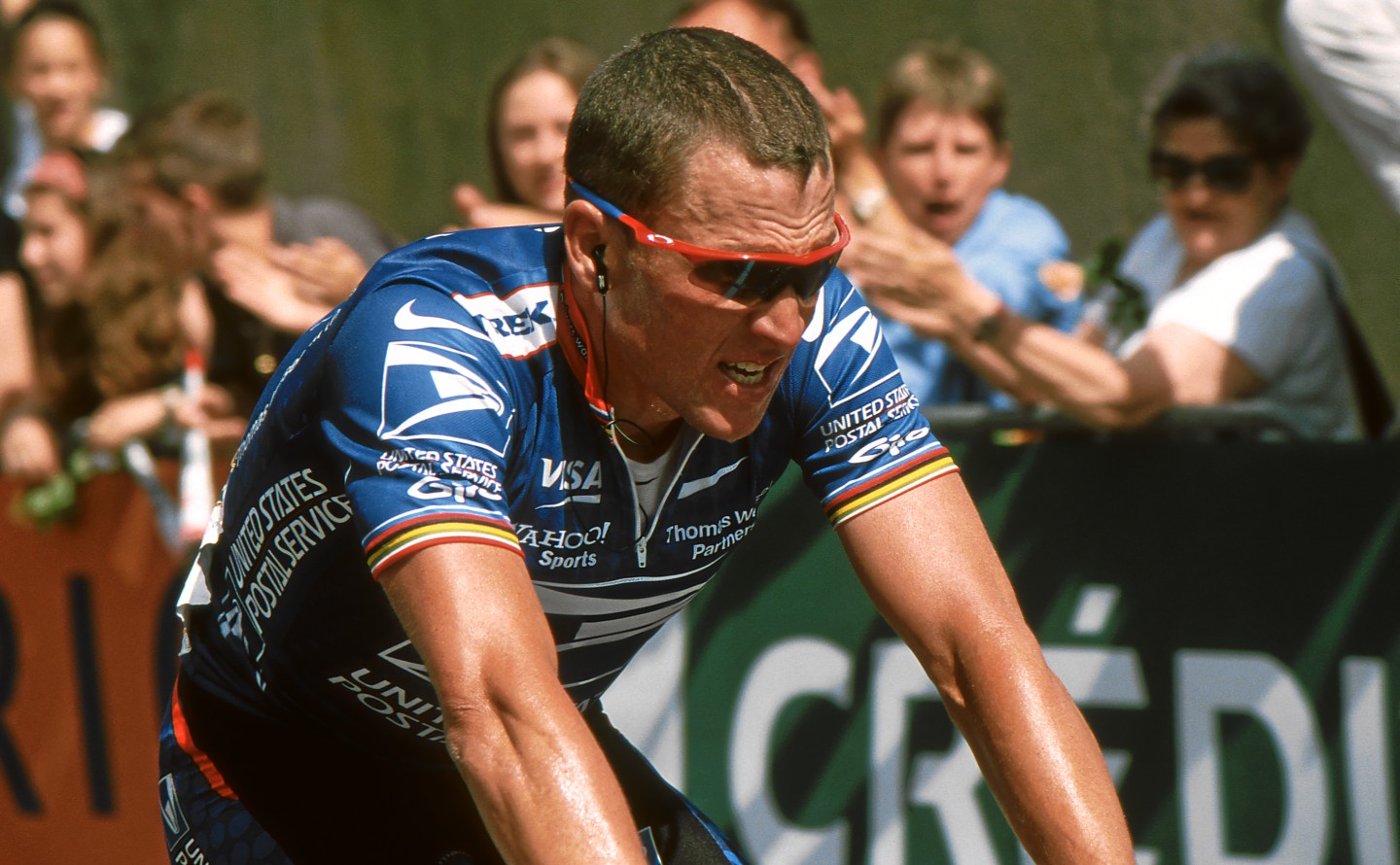
Can You Calculate the Impact of Cheating in Sports? (Op-Ed)

Jeff Nesbit was the director of public affairs for two prominent federal science agencies. This article was adapted from one that first appeared in U.S. News & World Report. Nesbit contributed the article to LiveScience's Expert Voices: Op-Ed & Insights.
First, there was Barry Bonds. Then, there was Lance Armstrong. Now, there's Alex Rodriguez, Major League Baseball (MLB)'s highest-paid player. All three are cheaters — extraordinarily well-paid, and quite famous, cheaters.
Nearly every columnist who's ever written about drugs in professional sports tells roughly the same story over and over — a pro cheats, gets caught and then faces discipline. Rodriguez, for instance, is likely to be suspended, perhaps for the rest of the season. But he'll be back, and he still draws MLB's biggest salary.
There's a good reason that Lance Armstrong cheated. He won seven Tour de France titles, because blood doping is the difference between really, really good and world class. Bonds hit more home runs than anyone in baseball history. That's why he cheated. Rodriguez is famous and he has that enormous MLB paycheck. That's why he cheated.
That's the risk and reward calculation professional athletes go through — cheat and become world class, or stay clean and fight for the top of the podium like everyone else. When Armstrong finally admitted to blood doping, he actually said just that — he had to cheat to be competitive at the top of the sport. There's some truth there.
But there's another side to this story that almost never gets told. In long-distance running or cycling, there are athletes who chose not to blood dope to get an extra 5 percent or 10 percent boost in performance at the elite level. What have they felt for years as their governing bodies chose not to level the playing field? Cheated.
In 1989, when I worked at the U.S. Food and Drug Administration (FDA), a cutting-edge drug called erythropoietin, or EPO, hit the market. EPO saves lives because it boosts red blood cells in the body, helping battle deadly diseases brought on by AIDS. As the FDA's public affairs chief, I helped write the first press release on its approval and generate the first stories about this new wonder drug.
Get the world’s most fascinating discoveries delivered straight to your inbox.
At the same time, elite athletes in cycling and running learned that EPO (and drugs like it) could also help deliver oxygen to their muscles in races, illegally enhancing their performance by as much as 10 percent. In elite athletics, that 10 percent is the difference between really good and world champion, between the back of the pack in the Alps and winning the Tour de France. It's why drug cheating quickly became commonplace in sports in which the rewards vastly outweighed the risks.
However, one side to this story almost never gets told: the story of those athletes who didn't cheat, the ones who fought for the podium and stayed clean and lost, time and time again. Meanwhile, their governing bodies never did all they could to clean up the sports. It's the story of elite, world-class athletes such as my sister, Joan Nesbit Mabe, who made the 1996 Olympic track and field 10,000-meter team on sheer guts and training — and no performance-enhancing drugs.
Though it was believed that EPO was widely used in sports like cycling and long-distance running throughout the 1990s, there was, in fact, no way to directly test for it until about 2000.
Some have argued that it's theoretically possible to achieve the same results at an elite level without cheating, that there are legal techniques to achieve the extra 5 percent to 10 percent you get from cheating through blood doping and other assorted, illegal, performance-enhancing drugs and techniques. It's a nice thought, but a hopeless one for the majority of elite runners who don't have sponsors to pay for that sort of training. For many, cheating is an easier, less costly route.
In fact, cheating was easy for a very long time. Take EPO one month before a race, and then let the extra red blood cells sit there in your system — and they remain there for four months. The EPO has long since washed out of your system by race day, but the effects of EPO are still there. Combine that with other undetectable stuff, and a cheater who wins money, fame and world championship medals is born.
I once posed this hypothetical question to my sister: If she could have increased her times at her peak by as much as 10 percent, what might she have been able to accomplish? Where would she have finished in major championship races, including world championships and the Olympics?
My sister doesn't think that way and wouldn't give me an answer. She competed to the very best of her abilities — clean — and she's perfectly content with the path she chose.
So I'll answer for her, hypothetically, to make the point about cheating in sports a bit clearer.
I'm using 10 percent as an average advantage, because experts say you benefit anywhere from 5 percent to 15 percent from EPO and blood doping. That means nothing to a recreational runner. But to an elite athlete, for whom every second counts, it can mean a great deal.
My sister's outdoor best in the 10,000 meters (10K), the event she ran in the 1996 Olympics in Atlanta, was 32:04. Had she cheated and given herself that 10 percent edge with EPO-plus, her best in the 10K could conceivably have been under 30 minutes, putting her in the top-25 times ever and faster than the existing American record.
If she'd cheated, she might very well be an Olympic champion. Even a 5-percent edge would have made her competitive with the Olympic medal times that year (which were all above 31 minutes).
Would my sister have competed that well if she'd taken performance-enhancing drugs? Who knows? But was my sister cheated, along with others like her who competed clean? You bet. And until there's a level playing field in these sports, one in which no one benefits from drugs, fans should feel cheated as well.
A version of this column appeared in the blog At the Edge by Jeff Nesbit on U.S. News & World Report. His most recent Op-Ed was titled "'Blackfish' Is an Intense Look at Orcas in Captivity." The views expressed are those of the author and do not necessarily reflect the views of the publisher.
